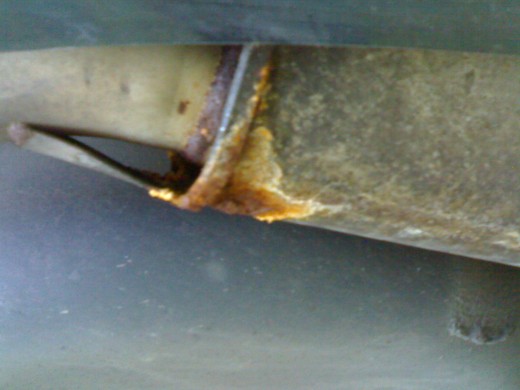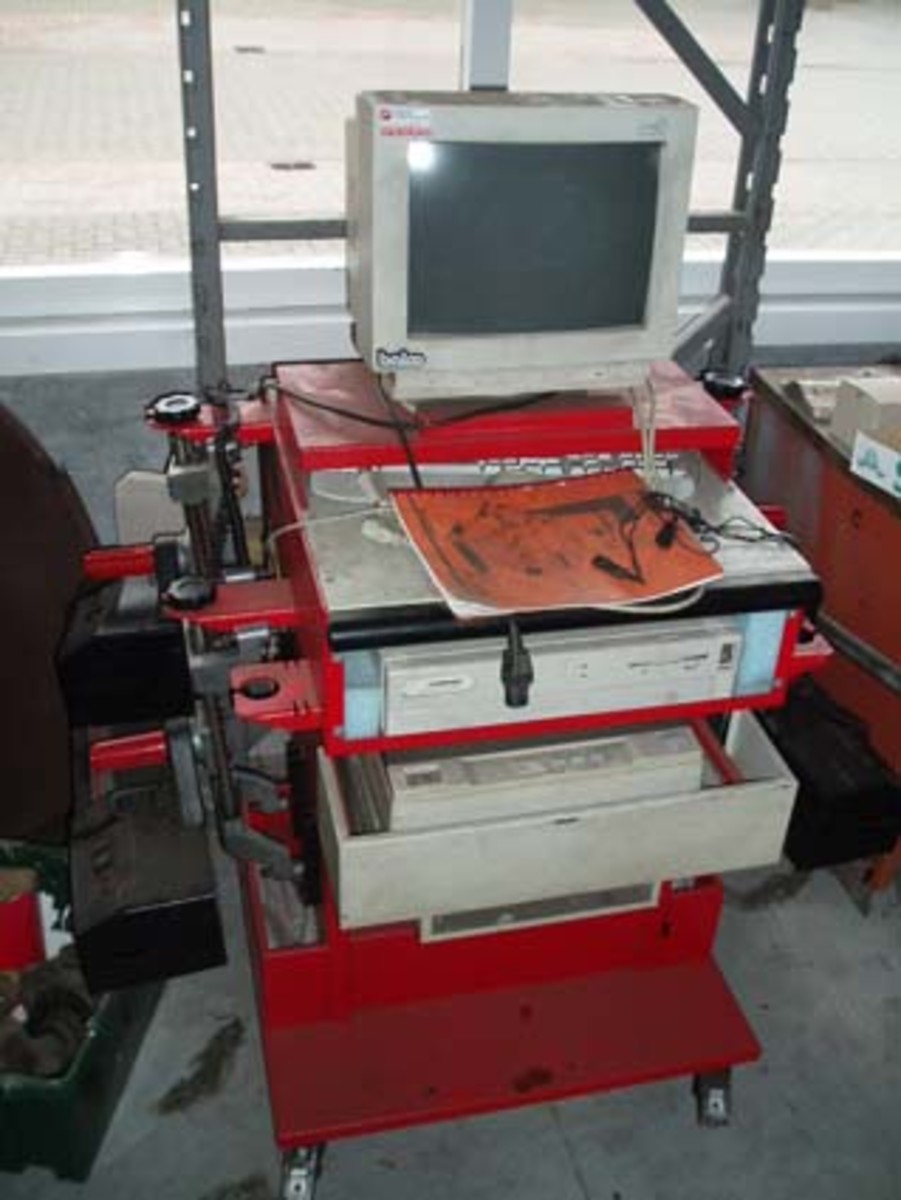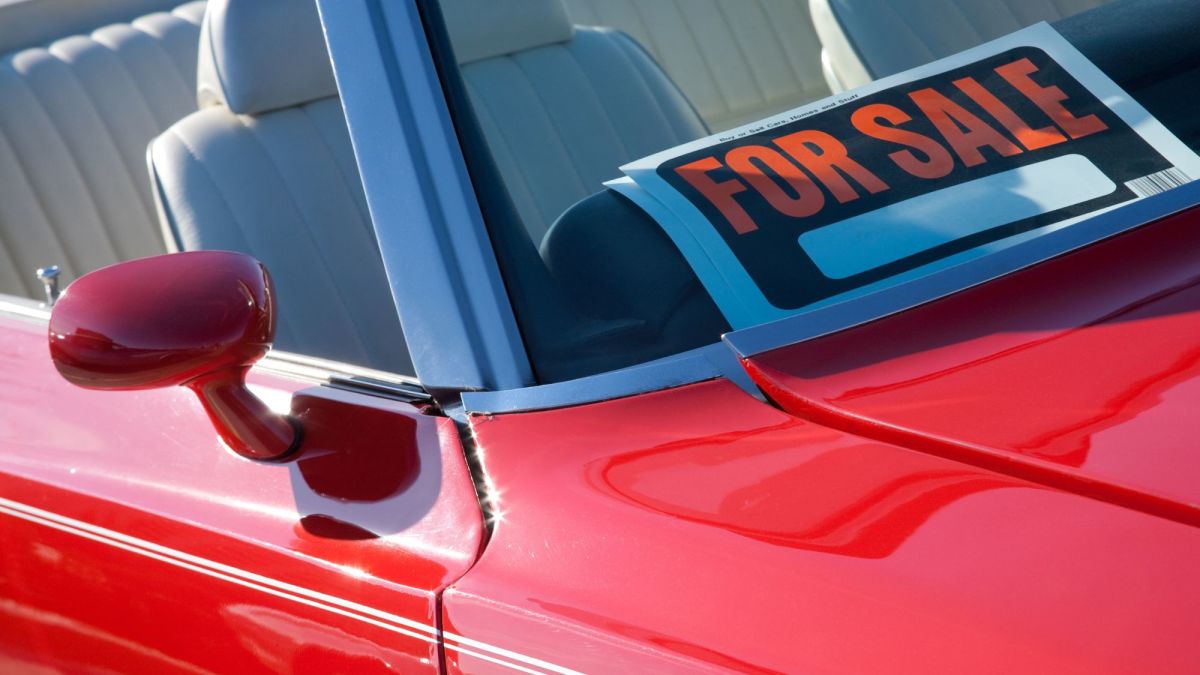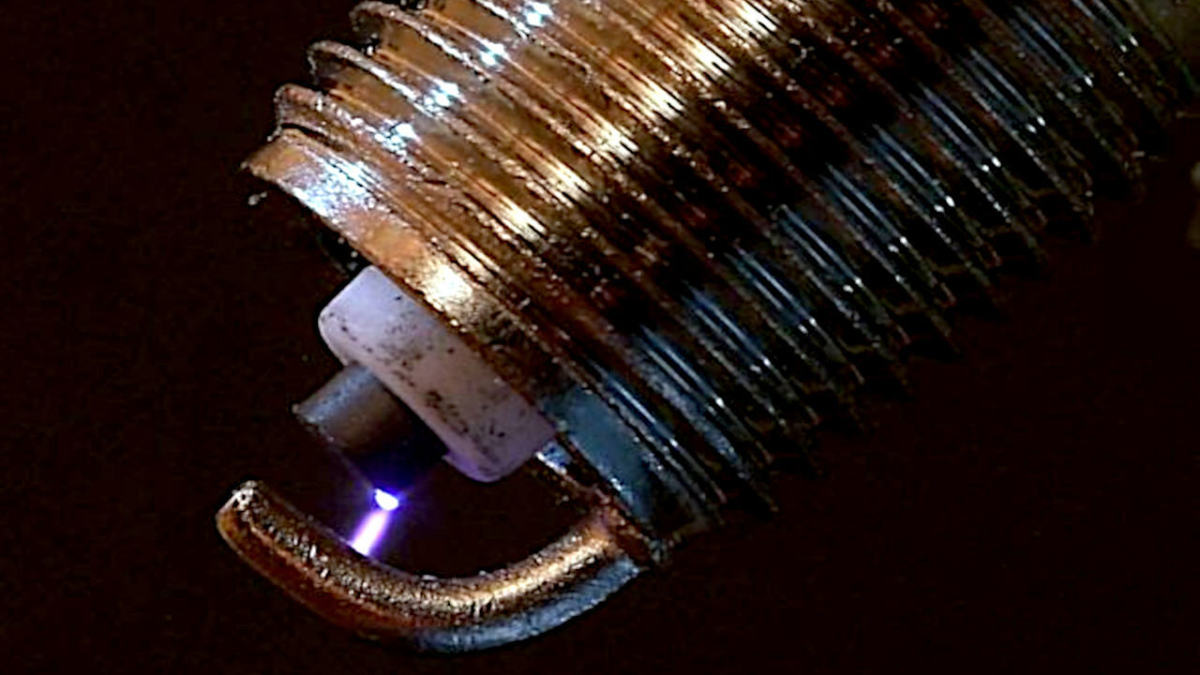How to buy repair and service your new or used car
How to get the right car service.
Servicing new cars.
When you buy a new car you need to be very careful choosing the dealership as they will be doing the service, and if you have any problems at all with a new car it is most likely caused by the mechanic doing the service. It can also mean the car has a design fault, but that is not the usual cause of problems in service with modern motor vehicles.
New car manufacturers have improved self-testing and mechanical/electronic self-analysis design to an amazing degree, and in 2011 you are very unlikely to find a "lemon" or badly made new car amongst the better manufacturers, but you could wind up with the wrong dealership very easily.
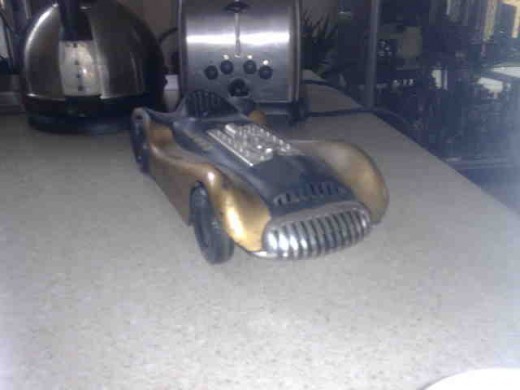
Purchase price is important, but no where near as important as who works on or services your new car.
These days repairs run in to the thousands and although you may not be paying for any of it under warranty, it usually means the dealership has screwed up your service and damaged your car, something that happens far too often.
You may have got the best price right for the car, but how long before problems with servicing costs you money and the loss of your car for days or weeks while they try new and expensive parts on your car to repair a problem they caused in service?
So much money and time is wasted in service departments or automotive workshops yet if you follow some basic rules you can be that rare person who gets a clean run without all the problems inherent in the service side of the equation.
- You can learn a lot while waiting for your car too If the waiting area and workshop are next to each other! See if anyone is wondering around looking for something, a sign that the place is not organised or tooled up properly.
- Watch to see if wheels are thrown or carefully and quickly lowered to the ground.
- See if the mechanics have all the protective covers in place while working on the motor, or are they leaning across your paintwork
- See if you can know something about the CEO. Good company directors usually run good businesses right down to the workshop floor because he knows how much it matters to his business's long term survival.
Some hard truths
Recently, (2005-2008) I owned the last independent workshop machinery doctor in my state. We repaired all workshop machinery and other equipment used in repairing cars in dealerships and independent workshops as well as franchised repairers.
My day was often spent in workshops. I saw a lot of things that confirmed that nothing has changed since my 35 year stint in the motor industry, except the mistakes made are more expensive for the owner!
We spent many hours watching mechanics do servicing while we
were repairing and servicing their heavy equipment such as wheel
balancing machines, car hoists wheel balancers, brake lathes, vehicle
air conditioning equipment repair stations, fuel injector cleaners and
other equipment and machinery. There is a lot of machinery in a workshop!
While completing a mandatory car hoist safety inspections I am often standing under the hoist alongside the mechanic and so get to hear his attitude and see the work in progress.
Workshops mechanics are a closeted lot, but It is easy to be accepted as one of the boys, when you are looking after the equipment they use all day long.
This is especially so with equipment like hoists where the
mechanic depends on your knowledge of the electric/electronic/hydraulic
machine that holds a two tonne car over his head while he walks around
underneath. He trusts his life to the hoist never failing, so a bit of
respect is shown for what we do.
Having worked in my own workshops for so many years before I started in this business I know the talk I walk the walk so with all that going for me they behave as if I were not even there!
Funny how they don't get
that I am fastidious in my work to ensure their safety and the perfect
operation of their machinery, yet assume I will be OK with me that their work is sloppy, and even assume I will approve of their attitude to the customer!
I may have several conversations like this a week.
me: "That's the new model?"
mechanic "Yeah.... nice. some rich sheila (female) owns it".
me "first service?"
mechanic "yep. nothin to do. just rub the dust of a coupla places, an as she's not payin for this service she ain't gettin one!"
Often followed by big guffaws from the other mechanics.
I have seen this same attitude in workshops wherever I have been in the world.
Pick
your mechanic.
You may have noticed many motor mechanics own
cars that need repair. In fact they often own cars that are
dressed to kill with all sorts of bolt on bits, yet in urgent need of
major engine or gearbox mechanical repairs. Avoid these cowboys like the
plague, they will destroy your car!
It is not because motor mechanics are poorly paid,or cannot afford a decent car that they manage to spend a fair bit of the time broken down.
These
guys have no love of what they do, and it is engineering knowledge that
these spanner twisters are missing. They have not learnt a complete understanding of the process they have been taught.
Motor engineering knowledge is what separates the mechanics from the parts re-placers and it matters more than ever that a mechanic understands metallurgy, as well as at least some familiarity with metals and bolt tension and the tensile strength of different plastics and metals. These are an essential set of skills needed on the floor in every workshop and often takes the form of the workshop manager, who is often sadly lacking in this understanding too.
Bad mechanics can be seen to do stupid things with their own cars like fit a loud exhaust which causes mechanical damage to the motor and produces less horsepower, or they fit tyres that are over-sized and dangerous that have no relationship to the power the car has or it's often dismal handling.
I have employed many mechanics. I have only found a handful that I could trust with any job. They were all exceptional engineers as well.
After so many years working on cars I can sympathise with a mechanic stuck in a lousy job and how he/she feels about repairing old cars.
They are dirty, they drip dirty oil on you, burn you, cover you in sticky greasy dirty oily sludge, ruin the skin on your hands, injure your hands when spanners "let go" etc etc. Cars! They get all sorts of weird problems, so watch out for the terminally sick of it ones as well..
The new cars have better fault reporting from better computers.
When a new car stops running It can be difficult to know which component has failed other than the fault being reported to the driver by a warning on the dashboard like a flashing light at a minimum, or in some cases a full report on the problem and how to remedy it.
In the past your new car dealer workshop had to plug your car into an external analysers if the car did not have enough information about the problem.
To deal with the latest cars problems a dealership will send it's mechanics back to University to learn how to understand the entire new process, or teach it in house.
Something goes wrong here. We seem to end up with too many mechanics replacing expensive and unnecessary components because these mechanics miss-read or do not understand what the cars computer is trying to tell them.
This usually results in a stack of money for nothing as he fits part after part trying to track down the problem.
To save face your friendly mechanic will tell you that all the components or parts they fitted were faulty, and you could be paying out thousands for what was a $3.00 problem!
You need to look out for yourself as an owner, especially if you know little or nothing about mechanical or electronic things, so the purpose of this article is to show you how to ensure you get the best service from your dealership.
Note: Make sure your new car can be serviced at other dealerships. You will understand why this can be important as you read this.
Your new car first service is crucial to your safety, peace of mind and wallet.
This video picks on a young American woman.
Buying and servicing a used car
Buying a used car, servicing and inspection.
Used cars need a much more comprehensive inspection and typically will need more expensive consumables like exhaust mufflers, brakes, paint, wheel bearings, tyres, wheel alignment, lights, windscreen, window winding motor replacement, rust or other body repairs etc.
- Deduct the price of any consumables that need replacement from the purchase price.
- Never buy on a rainy day. Water can hide body damage from all but the highly trained eye of a pro buyer.
- Check the service record in the owners service records to ensure it has been serviced at the correct intervals. you will find the service intervals in your service manual. Do not buy a car that has incomplete records under any circumstances.
Disc Brake rotor
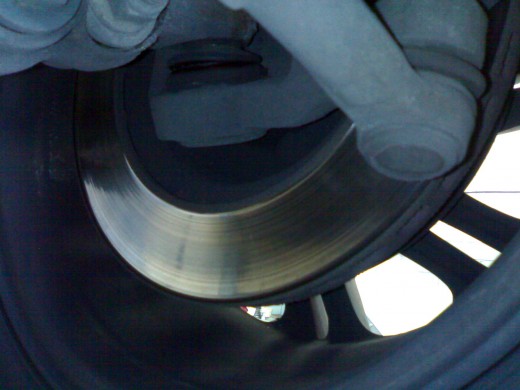
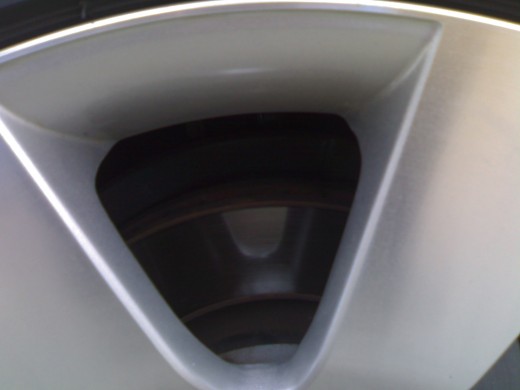
Disc rotor
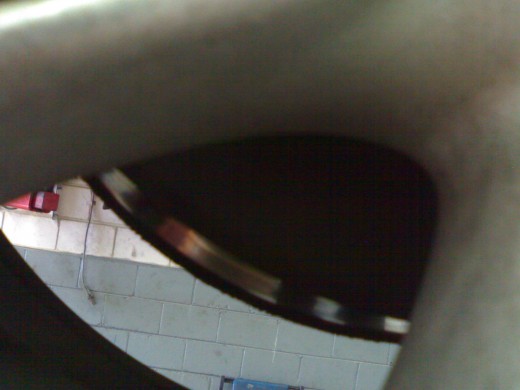
front muffler on Toyota Camry in good condition
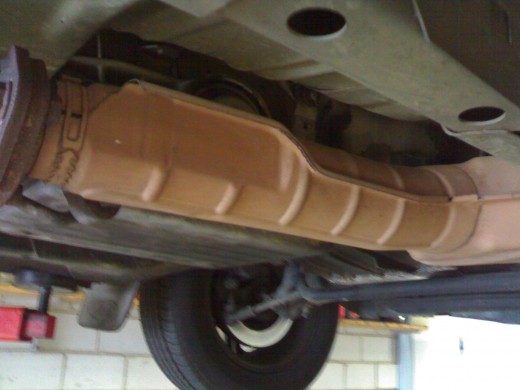
Middle muffler
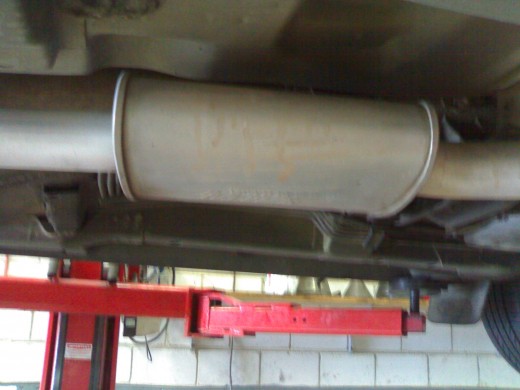
rear muffler on same car
